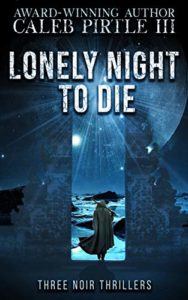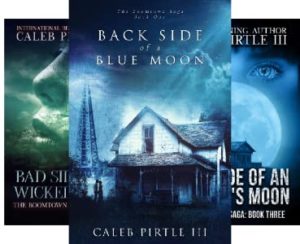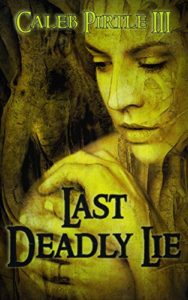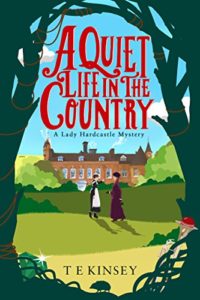Caleb Pirtle III
When I was growing up, if you wanted to become a fiction author, you wrote books and submitted them to book publishers. You could write short stories, but the magazine market had dwindled to such a point that the paying markets were just about impossible to break into. Which left you with a variety of fanzines that paid in contributor copies. If you were lucky.
Back in the 60s, 70s, 80s, and 90s things were pretty tough for those wanting to be a published author — especially an author of fiction. The Indie Movement is a tsunami of fresh air.
Caleb Pirtle III entered the world of writing, back in that pre-internet era, through the nonfiction side. He was a journalist, authored a variety of nonfiction books, was travel editor for Southern Living magazine, and editorial director for a custom book and magazine publishing company.
Moving into the fiction, he wrote screenplays, and today focuses on historical fiction, with a side of spy and psychological thrillers.
I’ve only read a smidgen of his 70+ published books. But that smidgen has been a gold mine. A literary El Dorado.
I’m very pleased to have discovered the many worlds Caleb Pirtle — and look forward to discovering many more!
The Quiet Assassin
Roland Sand is The Quiet Assassin and is the main character in three longish spy thriller novellas.
I suggest getting the one volume edition and read the stories one after the other, because the collection reads like a novel when read that way.
Sand was my introduction to Mr. Pirtle’s fiction, and I fell in love immediately. The writing is pictorially evocative. Pirtle wields words and sentences like an artist does a paintbrush. The characters are well-drawn, and you find yourself wondering where you’ve met them before. They are that real.
When I finished Lonely Night To Die, quite honestly I was sad. Sad because there were no more stories to read.
Pick up a copy of Lonely Night To Die at Amazon. You won’t be sorry.
The Boom Town Saga
Caleb has a time machine. I just know he does, because when I read the three books in The Boom Town Saga I was transported back to East Texas in the 1930s.
I could taste the dust, feel the sweat-producing humidity. I could reach out and touch the people of Ashland. I fell in love with Eudora Durant. And con artist though he is, I felt I could be friends with Doc Bannister.
The three books in The Boom Town Saga are three must reads. They will give you an understanding of Depression Era Texas that no text book will give you. And I think that’s because they are time machines. They’re also doggone good entertainment.
Get The Boom Town Saga at Amazon. You won’t be sorry. It’s some of the best reading I’ve experienced.
Last Deadly Lie
I am going to cheat, and quote my review from Amazon:
Last Deadly Lie is a powerful novel of greed, the lust for power, the desperate grasp for meaning and purpose, and of human depravity. The book is a starkly realistic portrayal of church people, small town people, all people. We all have our secrets. Secrets we will do anything to keep secret, and that is what gives this novel its power.
Caleb Pirtle’s strength as a fiction writer lies in his ability to put realistic characters on the page, and his ability to vividly paint a scene so that you can see, touch, and experience it right along with the characters. And to top it off, his prose sings.
Last Deadly Lie just might be the best novel I’ll read all year. Highly recommended.
What can I say? Stop what you’re doing and get this book right now! 🙂
Caleb Pirtle III is one of the very best writers to join the Indie Movement from traditional publishing. He is a fabulous craftsman, and I am looking forward to reading more of his wonderfully satisfying stories. Do give him a try, if you haven’t already. He’s magnificent.
Comments are always welcome. And until next time, happy reading!
Share This!



